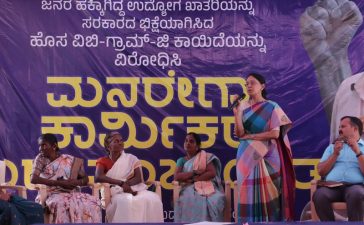Karnataka’s Selective Quota Exemption for Muslim Institutions Sparks Legal Challenge
Bengaluru, 20 May, 2025 – The Karnataka government has ignited controversy with a new policy exempting Muslim-run educational institutions from mandatory student quotas required for minority status—a concession not extended to other religious communities. The move has drawn sharp criticism, with a legal activist now preparing to challenge the decision in the Karnataka High Court.
Policy Shift: Muslim Institutions Exempted, Others Left Out
Until March 2024, Christian, Jain, and Parsi institutions had to admit at least 25% of students from their own communities to qualify as minority institutions, while higher education and technical institutes faced a stricter 50% threshold. The government later relaxed these rules, acknowledging the difficulty smaller communities faced in meeting the quotas.
However, in a follow-up order, only Muslim institutions were formally granted a blanket exemption—prompting accusations of preferential treatment.
The decision came after MLC Naseer Ahmed, political secretary to Chief Minister Siddaramaiah, petitioned the government in December 2023. Citing the 2011 census, officials noted that minorities constitute just over 16% of Karnataka’s population, with Muslims (78.94 lakh) far outnumbering Christians (11.43 lakh), Jains (4.4 lakh), Buddhists (95,000), Sikhs (28,000), and Parsis (1,100).
“Because the population of these communities is low, finding the required percentage of students for the declaration of religious minority educational institutions is difficult,” the government order stated.
Muslim Institutions Oppose Exemption, Fear Losing Minority Character
Ironically, several Muslim-run schools and colleges opposed the exemption, arguing that they already meet or exceed the quota. At a November 2023 cabinet meeting, Minority Welfare Minister B.Z. Zameer Ahmed Khan relayed their concerns, warning that removing the quota could lead to non-Muslim students dominating their campuses—eroding their minority identity.
Legal Challenge: Advocate Calls Policy “Unconstitutional”
Legal activist Advocate C.R. Imteyaz has vowed to challenge the government’s decision in the Karnataka High Court, calling it discriminatory.
“The government’s policy of exempting only Muslim education institutions from the minority-tag rules is incorrect and does not follow the Constitution,” Imteyaz said. He pointed out that the Constitution does not mandate any specific admission quota for minority institutions.
“How can a state government dictate a specific percentage of admissions to secure that status?” he asked, demanding the withdrawal of the exemption.
Critics Decry Unequal Treatment of Minorities
The Siddaramaiah government initially framed the March 2024 decision as a relief measure for all minority groups. However, the subsequent revision—excluding only Muslim institutions from quotas—has fueled allegations of unequal treatment.
Critics argue that the policy creates a two-tier system, violating the principle of equal rights for all minority communities. As the High Court prepares to hear Imteyaz’s petition, the case could set a precedent for how minority institutions across Karnataka admit students and maintain their religious identity.
The outcome may redefine the balance between minority rights and state regulation in education—a debate with far-reaching implications for Karnataka’s diverse communities.
![]()











